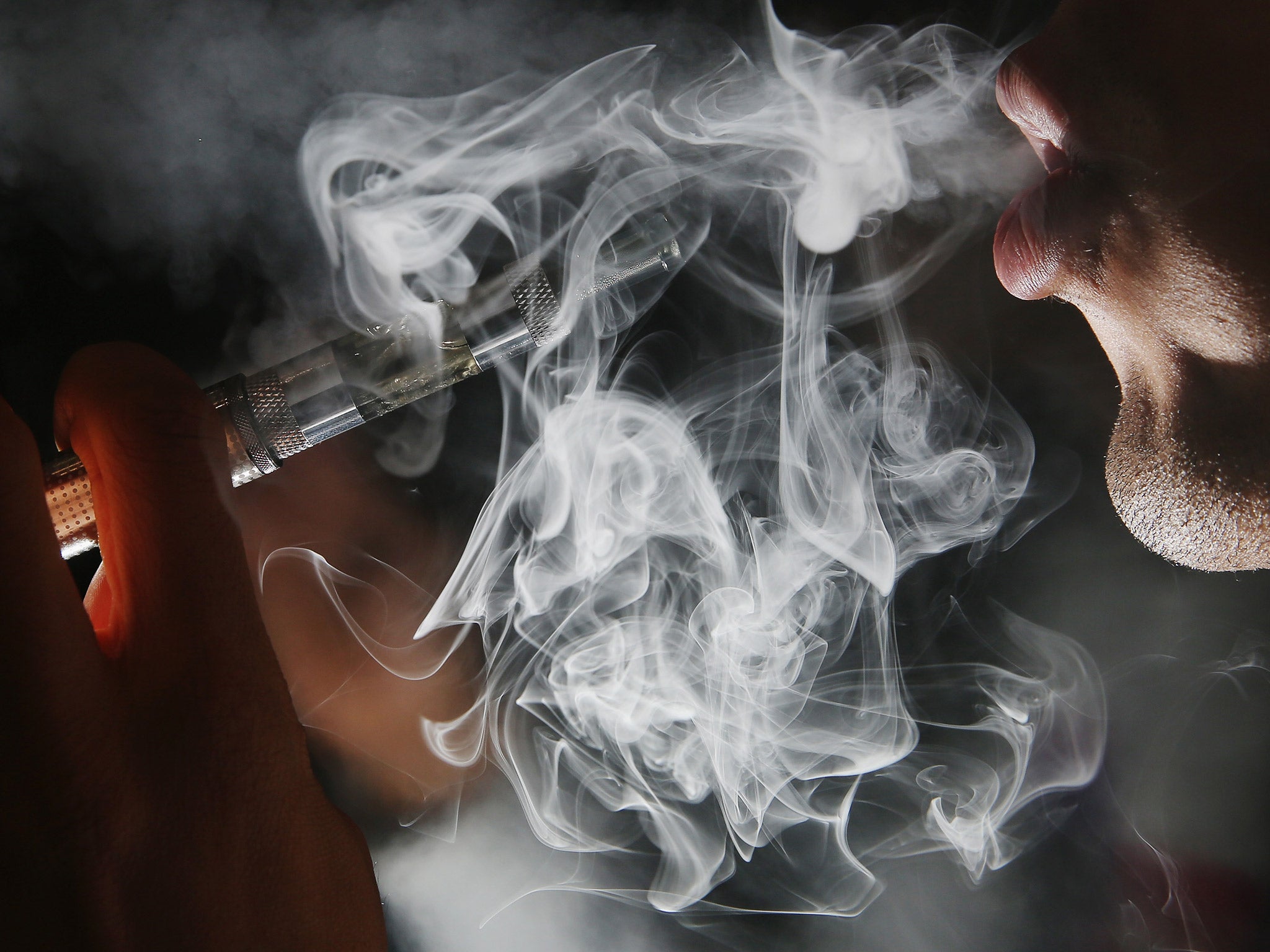E-cigarettes are popular with teenagers - but few of those who try them become regular users
Two surveys apparently allay fears that they are acting as a gateway to traditional smoking, although researchers believe it is 'something that needs monitoring'

E-cigarettes are becoming increasingly popular among teenagers, even among those who don't smoke conventional cigarettes.
New research has found that few teens who try e-cigarettes become regular users and most of those who do are already regular smokers.
The results come from two surveys of primary and secondary school children from more than 150 schools in Wales, published in the online journal BMJ Open.
E-cigarettes mimic the effect of real ones, producing a vapour that contains nicotine, the addictive substance in cigarettes. The vapour is considered less harmful than cigarette smoke.
They have so far divided opinion. Some see them as a vital tool to help people quit smoking. Others argue they may “normalise smoking” and act as a gateway to traditional smoking.
In all, 1,601 children aged 10-11 and 9,055 aged 11-16 were asked about their use of e-cigarettes.
Using e-cigarettes at least once was more common than having smoked a normal cigarette among all age groups - except 15-16 year olds.
Some 5.8 per cent of 10-11 year olds had tried e-cigarettes, while only 1.6 per cent had tried tobacco.
A sizeable proportion of 11-16 year olds, 12.3 per cent, had used e-cigarettes.
The research contrasts patterns usually seen in traditional smoking, which tends to be more prevalent among children from lower-class backgrounds, with e-cigarette experimentation having a more universal appeal among teenagers.
The odds of regular e-cigarette use were 100 times higher among weekly smokers than non-smokers. They were 50 times higher among those who had smoked cannabis.
The researchers say that the strong link between current smoking and e-cigarette use suggests teenagers aren't using e-cigarettes to help quit smoking.
The paper's lead researcher, Graham Moore, told The Independent: “There are some concerns at the moment that the growth of e-cigarettes may be helping to get a new generation of young people addicted to nicotine. At the moment, that doesn't seem to be the case. There doesn't seem to be too much reason to worry that that's actually happening.
“Tobacco cigarettes are purposefully engineered to be as addictive as possible, whereas with e-cigarettes the delivery of nicotine doesn't take place alongside a lot of chemicals that are put into tobacco cigarettes to make them more addictive.
“We don't really know how harmful e-cigarettes are. It seems fairly unlikely they'll be shown to be as harmful as tobacco. But that doesn't mean they're harmless, there are some studies which show they do contain low levels of carcinogens.
“At the moment it doesn't look like they are acting as a gateway, but that doesn't mean at some point in the future that won't happen. It's something we need to monitor quite closely.”
Join our commenting forum
Join thought-provoking conversations, follow other Independent readers and see their replies
Comments
Bookmark popover
Removed from bookmarks